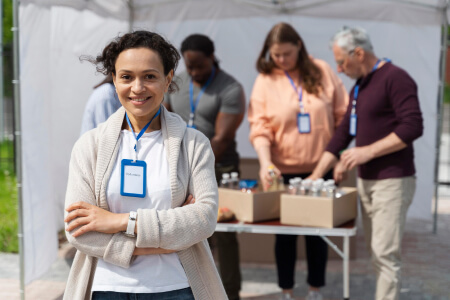Understanding Post-Stroke
Post-Stroke Clinical Trials
A stroke occurs when blood flow to the brain is interrupted or reduced, depriving brain cells of oxygen and nutrients. This can lead to brain cell damage and loss of function. Strokes are one of the leading causes of disability worldwide, often resulting in long-term physical, cognitive, and emotional challenges.
Post-stroke care focuses on recovery and minimizing complications, but ongoing research aims to improve treatments and outcomes for stroke survivors.
- Sudden numbness or weakness, especially on one side of the body
- Confusion, trouble speaking, or understanding speech
- Vision problems in one or both eyes
- Difficulty walking, dizziness, or loss of balance
- Severe headache with no known cause
What Causes a Stroke?
- Ischemic Stroke: Caused by blood clots or blockages in blood vessels.
- Hemorrhagic Stroke: Caused by bleeding in or around the brain due to ruptured blood vessels.
- Transient Ischemic Attack (TIA): Also called a "mini-stroke," it is a temporary blockage with no long-term damage.
- High blood pressure and heart disease
- Diabetes and obesity
- Smoking and excessive alcohol consumption
- Sedentary lifestyle
- Family history of stroke
What Are Post-Stroke Clinical Trials?
- Restoring physical and cognitive functions
- Reducing the risk of recurrent strokes
- Testing medications, devices, or rehabilitation therapies
- Exploring lifestyle modifications for better recovery
- Access cutting-edge treatments and therapies not yet available to the public
- Receive expert medical care and regular health evaluations at no cost
- Play an active role in advancing stroke recovery research
- Contribute to developing better treatments for future stroke survivors
Who Can Participate?
- Individuals who have experienced a stroke within a specified time frame (e.g., weeks, months, or years)
- Stroke survivors with ongoing physical, cognitive, or emotional challenges
- Individuals at risk of recurrent strokes
- Healthy individuals for control group comparisons
Post-Stroke Clinical Trial – Do I Qualify?
Post-Stroke
Our Contact
We’re here to help! Reach out to us for any inquiries, support, or feedback. Our team is ready to assist you.
- (626) 657-6005
- 960 E. Green St., Suite 310, Pasadena, CA 91106
What to Expect During a Clinical Trial

Screening
Participants undergo a thorough evaluation to determine eligibility. This includes reviewing medical history, imaging results, and functional assessments.

Informed Consent
Participants receive detailed information about the trial, including its purpose, procedures, potential risks, and benefits. Participation is voluntary, and you can withdraw at any time.

Participation
Participants may receive experimental treatments, standard therapies, or a placebo (if applicable). Regular checkups, therapy sessions, or imaging tests may be part of the study.

Follow Ups
After completing the trial, participants are monitored to evaluate long-term outcomes and effectiveness of the treatment.

How to Get Involved
- Complete the online registration form below.
- Speak with our clinical trial coordinator to discuss your eligibility.
- Schedule a screening appointment.



Join Our Post-Stroke Clinical Trials Today
Your participation can make a significant impact in advancing stroke recovery research. Together, we can help improve outcomes for stroke survivors and pave the way for better treatment options.
Frequently Asked Questions?
What is a post-stroke clinical trial?
A post-stroke clinical trial is a research study that explores new treatments and rehabilitation methods to improve recovery and quality of life for stroke survivors.
Who can join a post-stroke clinical trial?
Participants may include individuals who have experienced a stroke, are recovering, or are at risk of recurrent strokes. Eligibility criteria vary by trial.
Are clinical trials safe?
Yes, all clinical trials are reviewed and approved by ethics boards to ensure participant safety and follow strict protocols.
Do I need to pay to participate?
Participation is typically free, and some studies may offer compensation for time and travel expenses.
How long does a clinical trial last?
The duration of clinical trials varies but can range from a few weeks to several months, depending on the study design.
How long does a clinical trial last?
The duration of clinical trials varies but can range from a few weeks to several months, depending on the study design.
Can I leave the trial if I change my mind?
Yes, participation is voluntary, and you can withdraw at any time.



01
Have Questions? We’ve Got Answers
Explore our comprehensive FAQ section to find answers to common questions about clinical trials, participation, and more. Get informed and feel confident about taking the next step.
02
Your Safety is Our Priority
Real Voluteer Stories, Real Impact


